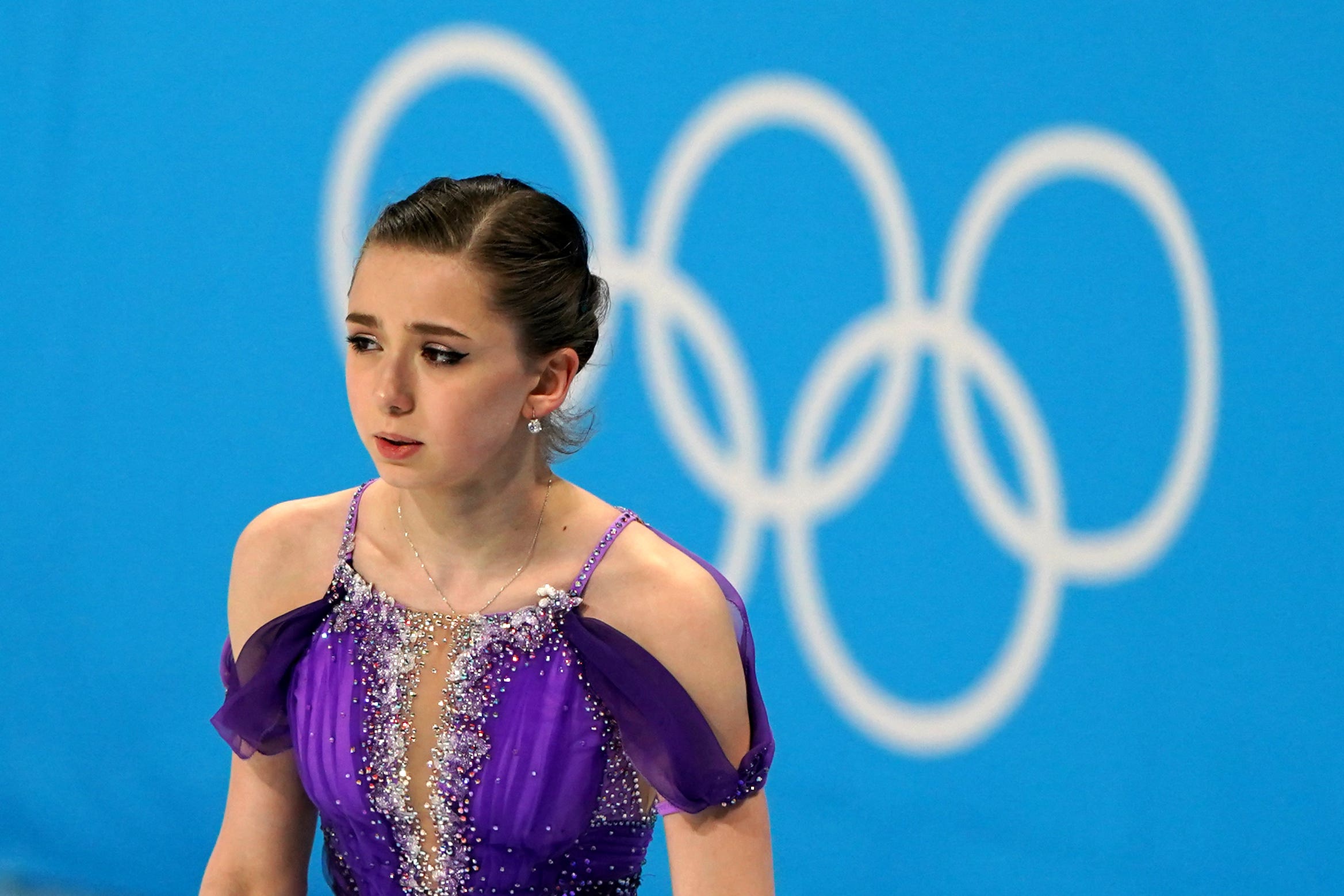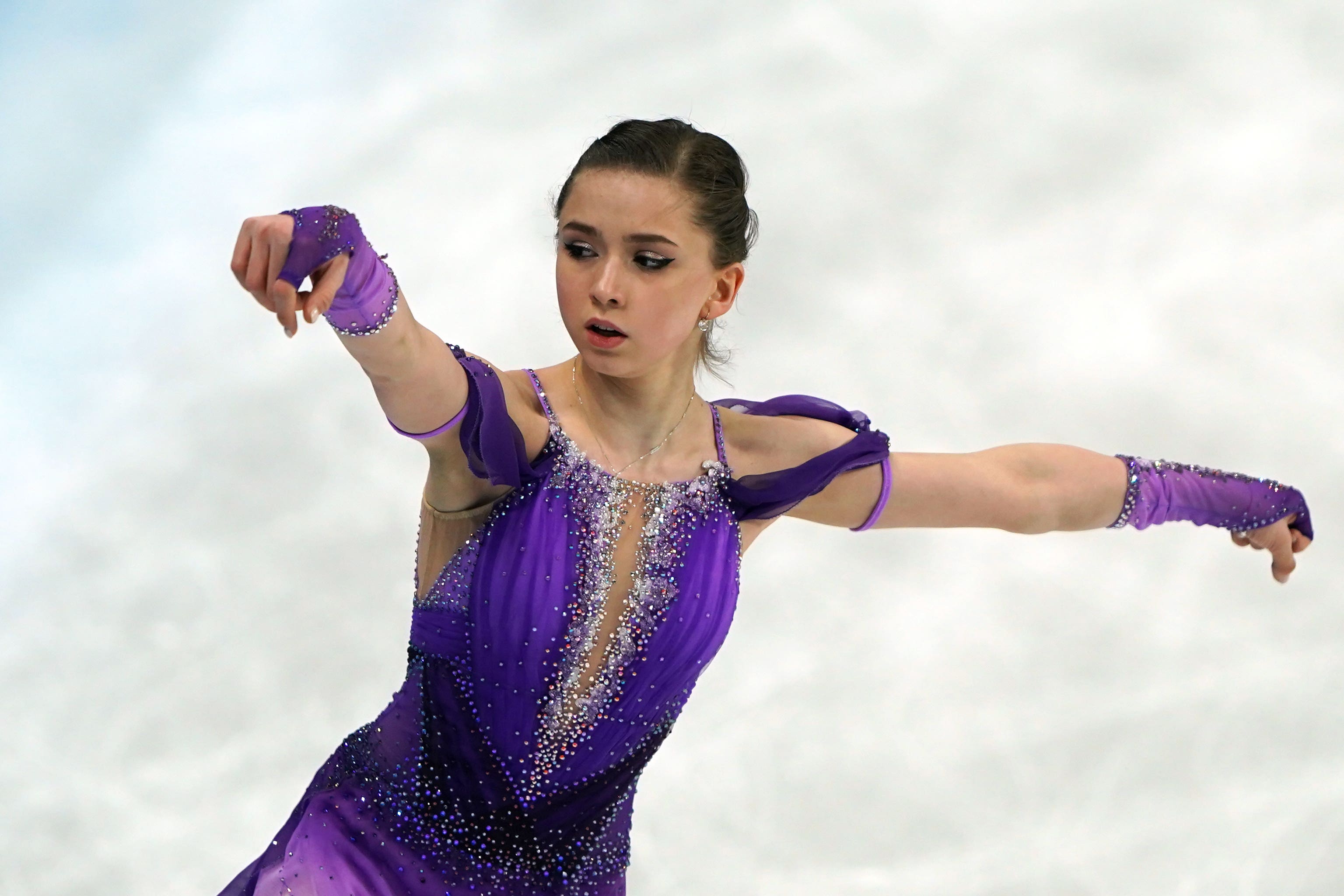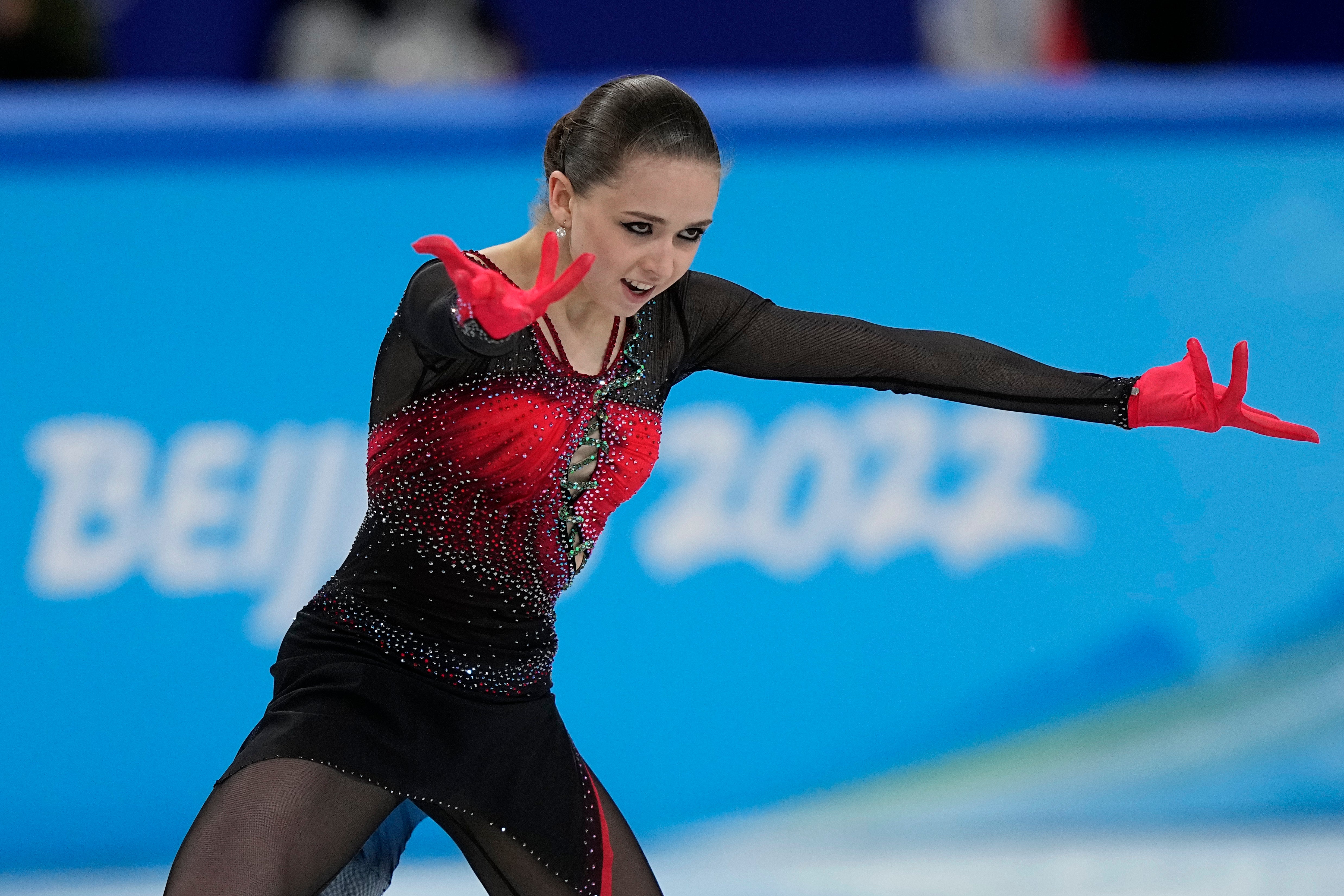Kamila Valieva blames strawberry dessert for failed drugs test
The Russian athlete was handed a four-year ban by the Court of Arbitration for Sport following her failed test at the 2021 Russian national championships before the Winter Games in Beijing

Your support helps us to tell the story
From reproductive rights to climate change to Big Tech, The Independent is on the ground when the story is developing. Whether it's investigating the financials of Elon Musk's pro-Trump PAC or producing our latest documentary, 'The A Word', which shines a light on the American women fighting for reproductive rights, we know how important it is to parse out the facts from the messaging.
At such a critical moment in US history, we need reporters on the ground. Your donation allows us to keep sending journalists to speak to both sides of the story.
The Independent is trusted by Americans across the entire political spectrum. And unlike many other quality news outlets, we choose not to lock Americans out of our reporting and analysis with paywalls. We believe quality journalism should be available to everyone, paid for by those who can afford it.
Your support makes all the difference.Kamila Valieva blamed a strawberry dessert for the positive doping test that led to her four-year ban from the sport this week.
The Court of Arbitration for Sport has published its full report of the verdict against the Russian figure skater, who claimed the food was inadvertently contaminated by her grandfather’s heart medication.
Wada stated that “doping of children is unforgivable” in light of the news, given Valieva was then aged 15.
She tested positive for the banned substance trimetazidine during the Russian national championships in December 2021 emerged during the following year's Winter Games in Beijing.
Valieva proposed three possible explanations for the positive test, all of which revolved around a strawberry dessert she claimed her grandfather, Gennady Solovyov, gave her in the evening before her departure to St Petersburg.

In submitted evidence, Valieva referenced her grandfather's heart medication and added: “Probably, this pill got into a dessert, which he usually gives to me.
“Or, I saw a few times accidentally, that he crushed the pills with the knife and dissolves them in a glass, and took them. So I might have drunk from the same glass or there, at home, I might have eaten something from the same chopping board and so on.”
However, the World Anti-Doping Agency (Wada), one of three bodies to pursue the CAS verdict along with International Skating Union (ISU) and the Russian Anti-Doping Agency (Rusada), dismissed the explanation.
According to the CAS judgement, Wada submitted that it was “inherently implausible” that an athlete at this elite level would take a homemade strawberry dessert with her across Russia and eat it during a competition period.
Wada also questioned the lack of medical evidence relating to Solovyov's heart condition, saying it was “nearly impossible” for him to have had such a condition "without there being any contemporaneous evidence of it".
In its verdict, the CAS panel broadly concurred with Wada’s submission, also questioning the lack of evidence of Solovyov's prescription to TMZ and inconsistencies in submitted evidence relating to the existence of the strawberry dessert.

It concluded that it was “not persuaded” by the explanation because “there are too many shortcomings in the evidence, and too many unanswered questions, for the panel to decide that her account is more likely than not”.
It further found that Valieva and her team had not managed to establish that she did not commit the anti-doping rule violation intentionally and that the consequence should be a four-year ban, backdated to the time of the failed test, meaning it will run until Christmas Day 2025.
Valieva has also forfeited all medals won during her backdated period of disqualification, including the team gold won by Russia in Beijing.